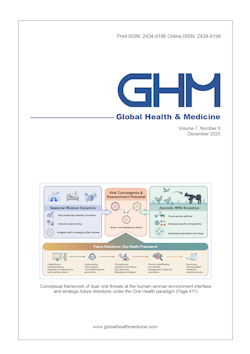Global Health & Medicine 2020;2(3):197-199.
COVID-19: emerging challenges for oncological surgery
Torzilli G, Galvanin J, Viganò L, Donadon M, Montorsi M
After the initial description of COVID-19 in Wuhan, China, Italy was hit first in Europe and the impact has been rapidly enlarging. In early April 2020, at the epidemic peak, there were more than 33,000 patients hospitalized including more than 4,000 in Intensive Care Units (ICU). On May 15, the confirmed cases in Italy approached 224,000 patients (5th highest number worldwide), with more than 31,000 deaths (3rd highest number worldwide). Non-urgent, non-cancer procedures were stopped to reallocate nurses and anesthetists to face the COVID-19 emergency. The timeline of the progressive involvement by COVID-19 patients of 36 hospitals referrals for surgical oncology in Italy was shown in this article. Only emergency, and elective oncological procedures were allowed with obvious limitations in terms of numbers of operable cases. Criteria for prioritizing oncologic patients waiting for surgery were released by each region, mainly issuing main factors for decision making, biological aggressiveness or symptomatic disease, the interval from the latest treatment, and the risk of un-resectability if delayed. However, the lack of facilities mostly influenced the decision or not to proceed. The risk of operating on oncological patients with ongoing SARS-CoV-2 syndrome is real, and a preoperative flowchart for ruling out this occurrence has been promoted. In our center, the day before surgery, chest CT and swab testing have been introduced, and a similar behavior has been recommended prior to patients' discharge. The care of patients addressed for surgical oncology should be featured by dedicated paths to secure proper and prompt disease management.
DOI: 10.35772/ghm.2020.01039







